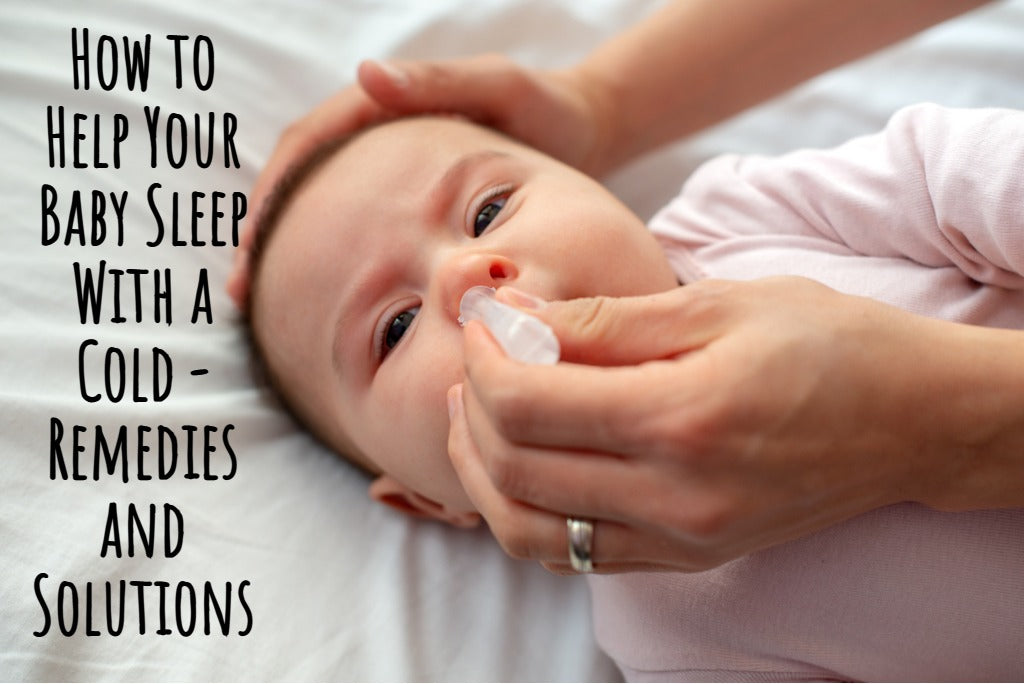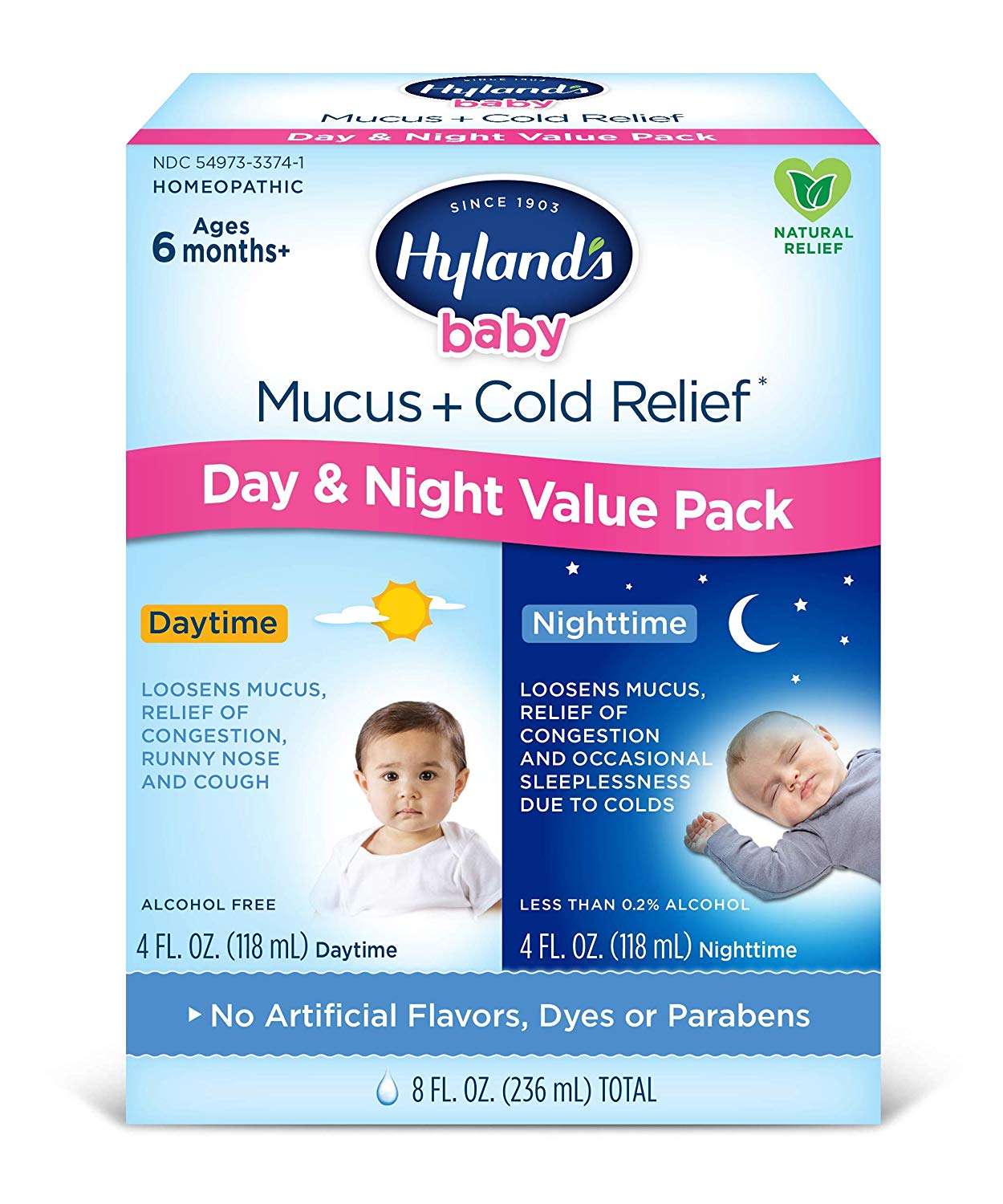Baby cold medicine is not recommended for infants under two years old, as it can be potentially harmful. Treating a baby’s cold symptoms should be done through natural remedies and non-medical interventions.
However, if symptoms persist or worsen, it is important to consult a pediatrician for further guidance and appropriate treatment options.

Understanding Baby Cold Medicine
Understand baby cold medicine by knowing the appropriate medication and dosage for your little one. Ensure to consult a pediatrician before administering any medicine to your baby to alleviate cold symptoms effectively. Always follow the recommended guidelines to keep your baby safe and healthy.
Baby cold medicine can provide relief for little ones suffering from the discomfort of a cold. However, it’s essential for parents to understand the common symptoms and safety concerns associated with these medications.
Common Symptoms
Babies can exhibit various symptoms when they have a cold. It’s crucial for parents to recognize these signs to ensure proper care and treatment. Some of the most common symptoms include:
- Nasal congestion, which can make it difficult for babies to breathe and sleep
- Runny or stuffy nose, causing discomfort and irritability
- Sneezing, as the body tries to clear the nasal passages
- Coughing, which can be dry or accompanied by phlegm
- Fever, indicating the body’s immune response to infection
- Sore throat, leading to difficulties in feeding and swallowing
Safety Concerns
While baby cold medicine can be helpful in providing relief, it’s important for parents to be aware of the safety concerns surrounding these medications:
- Age restrictions: Many baby cold medicines should not be given to infants under a certain age. It’s crucial to review the packaging and consult with a healthcare professional before giving any medication to your little one.
- Proper dosage: Overdosing can be harmful to babies. Always follow the recommended dosage instructions, based on your child’s age and weight. If in doubt, consult a doctor or pharmacist.
- Active ingredients: Some baby cold medicines contain active ingredients that may cause drowsiness or other side effects. It’s essential to read the labels carefully and be aware of any potential interactions with other medications your baby may be taking.
- Non-medicinal remedies: Apart from medications, there are various non-medicinal remedies that can help alleviate cold symptoms in babies. These include using a humidifier, saline nose drops, or providing plenty of fluids to keep your little one well hydrated.
While baby cold medicine can provide much-needed relief, it’s crucial for parents to understand the common symptoms and potential safety concerns associated with these medications. By staying informed and seeking professional advice when necessary, parents can ensure their little ones receive the appropriate care and comfort during this discomforting time.
Choosing The Right Medicine
When your baby is suffering from a cold, finding the right medicine to provide relief can be a challenge. With so many options available, it’s essential to choose wisely to ensure your little one receives the most appropriate care. Here, we discuss age-appropriate options and explore natural remedies that can help your baby find comfort and ease during this challenging time.
Age-appropriate Options
Babies of different ages may require different types of cold medicine. It’s crucial to select a product that is suitable for your child’s specific age group to ensure safe and effective treatment. Here are some age-appropriate options to consider:
| Age Group | Suggested Medicine |
|---|---|
| 0-6 months | Nasal saline drops to alleviate congestion. |
| 6-12 months | Gentle over-the-counter cough syrups approved by a pediatrician. |
| 1-2 years | Antihistamines and decongestants suitable for toddlers. |
Natural Remedies
While over-the-counter cold medicines can be beneficial, many parents prefer to explore natural remedies as a gentle and safe alternative for their little ones. Natural remedies can provide comfort and relief without the potential side effects of certain medications. Consider the following natural remedies to soothe your baby’s cold symptoms:
- Steam therapy: Run a hot shower to create steam in your bathroom and sit with your baby in the warm mist to help relieve congestion.
- Warm fluids: Offer your baby warm liquids like chicken broth or herbal tea to soothe a sore throat.
- Nasal saline solution: Use a nasal saline spray or drops to moisten and clear your baby’s nasal passages.
- Elevating the head: Place a small pillow or folded towel under your baby’s mattress to elevate their head slightly, promoting better breathing.
- Humidifier: Use a cool-mist humidifier in your baby’s room to add moisture to the air, reducing dryness and congestion.
Remember that it’s always best to consult with your pediatrician before administering any medication or natural remedy to your baby. They can provide expert guidance tailored to your child’s specific needs and ensure the chosen treatment is safe and appropriate.
Administering Baby Cold Medicine
When your little one is suffering from a cold, finding the right way to administer baby cold medicine can be a challenge. As a parent, it’s natural to worry about the dosage and proper administration of medication to ensure your baby’s safety and well-being. In this article, we’ll cover some essential guidelines and helpful tips for administering baby cold medicine effectively.
Dosage Guidelines
When it comes to baby cold medicine, it’s crucial to follow the dosage guidelines provided by your pediatrician or stated on the packaging. These guidelines are based on your baby’s age, weight, and the specific medication. Remember, your baby’s delicate immune system requires careful attention to ensure the right amount of medication is administered.
To determine the correct dosage, consult with your pediatrician and use a suitable measuring device such as an oral syringe or dropper. Avoid using spoons from your kitchen, as they may not provide accurate measurements.
Administration Tips
Administering baby cold medicine can sometimes be a challenging task. However, with some helpful tips and tricks, you can ensure a smoother experience:
- Create a calm and distraction-free environment: Find a quiet and soothing place where you can administer the medicine without distractions. This will help your baby stay calm and focused.
- Position your baby comfortably: Hold your baby securely in your lap or lay them down on a changing table. Make sure their head is slightly elevated to help with swallowing.
- Use a gentle touch: Approach your baby calmly and gently. Talk softly, making them feel reassured and safe. This will help ease any potential anxiety.
- Divide the dose into multiple administrations: If the prescribed dose is large, divide it into smaller portions and administer them gradually. This can make it easier for your baby to swallow.
- Mix the medicine with a small amount of milk or food: If allowed by your pediatrician, consider mixing the medicine with a small amount of breast milk or formula. This can help mask the taste and make it more palatable for your baby.
Remember to always follow your pediatrician’s instructions and recommendations precisely. If you have any concerns or questions, don’t hesitate to reach out to your healthcare provider for further clarification. By following these dosage guidelines and administration tips, you can effectively administer baby cold medicine and provide your little one with the relief they need.

When To Consult A Doctor
Knowing when to consult a doctor about your baby’s cold symptoms is crucial for their health and well-being. If you notice any severe symptoms or if your baby’s illness persists, it’s important to seek medical advice. Here are two situations where you should consider consulting a doctor:
Severe Symptoms
If your baby experiences any of the following severe symptoms, it’s essential to consult a doctor:
- High fever above 100.4°F (38°C) that lasts for more than three days.
- Rapid or difficulty breathing, accompanied by wheezing or gasping for air.
- Severe coughing spells that cause your baby to vomit or have trouble breathing.
- Visible signs of dehydration, such as dry mouth, sunken eyes, or producing less urine.
- Refusal to eat or drink for an extended period, leading to signs of malnourishment.
- Convulsions or seizures, which can be signaled by unusual body movements or unconsciousness.
- An extremely irritable baby who doesn’t respond to stimuli or seems unusually lethargic.
- A persistent rash or skin irritation that worsens or spreads rapidly.
Persistent Illness
If your baby’s cold symptoms persist for longer than a week, it’s important to consult a doctor. Common signs of a persistent illness include:
- Continued nasal congestion and difficulty breathing, even after regular suctioning.
- Persistent cough with no improvement, or a cough worsening over time.
- Prolonged fever above 100.4°F (38°C) that doesn’t subside with home remedies.
- Worsening earache or ear infection symptoms, such as pulling at the ears or fluid discharge.
- Repeated episodes of vomiting or diarrhea that lead to dehydration.
- Unexplained weight loss or failure to gain weight over an extended period of time.
Remember, it’s always better to be cautious and seek professional medical advice when it comes to your baby’s health. Consulting a doctor ensures appropriate diagnosis and treatment for your little one’s cold symptoms.
Conclusion And Precautions
When it comes to giving babies cold medicine, it is crucial to be well-informed about safety precautions and the best course of action. As a caregiver, it is important to prioritize the well-being of the little one and ensure their safety and comfort. Let’s delve into some important closing thoughts and safety precautions when it comes to administering baby cold medicine.
Closing Thoughts
It is imperative to remember that while baby cold medicines can provide relief, they are not without risks. Always consult a pediatrician before administering any medications to infants. Prioritize natural remedies and comfort measures whenever possible. Always carefully follow the doctor’s guidance and dosage instructions to ensure the little one’s safety.
Safety Precautions
- Always consult a pediatrician before giving any cold medicine to a baby.
- Read and follow the dosage instructions precisely.
- Never give adult or over-the-counter medications to infants without a doctor’s approval.
- Avoid using multiple medications simultaneously without professional advice.
- Always store medications out of reach of children and in a secure location.
- Be alert to possible side effects and seek immediate medical attention for any concerns.
- Consider natural remedies and non-medication options as a first line of defense against cold symptoms.

Frequently Asked Questions For Baby Cold Medicine
What Can I Give My Baby For A Cold?
Give your baby plenty of fluids, such as water or breast milk, to keep them hydrated. Use a cool mist humidifier to soothe congestion. Saline nasal drops can help clear their stuffy nose. Consult your pediatrician for further guidance on over-the-counter cold medications for infants.
Can You Give Babies Anything For Congestion?
You can give infants saline drops or a cool mist humidifier to help with congestion.
Which Syrup Is Used For Cold And Cough For Babies?
The syrup commonly used for cold and cough in babies is specifically formulated for their delicate systems. It is best to consult a pediatrician for an appropriate recommendation.
How Do You Treat A 1 Month Old With The Flu?
To treat a 1-month-old with the flu, consult a doctor for guidance on suitable medications or treatments. Provide plenty of fluids and keep your baby comfortable by monitoring their temperature, using a humidifier, and offering gentle suction to clear their nose.
Seek medical advice promptly for any concerning symptoms or concerns.
Conclusion
Finding the right cold medicine for your baby can be challenging, but it’s important to prioritize their safety and well-being. By consulting with a healthcare professional, considering natural remedies, and following the recommended dosages, you can help alleviate their symptoms and ensure a speedy recovery.
Remember, always consult a medical professional before administering any medication to your baby. Stay informed and keep your little one healthy!





